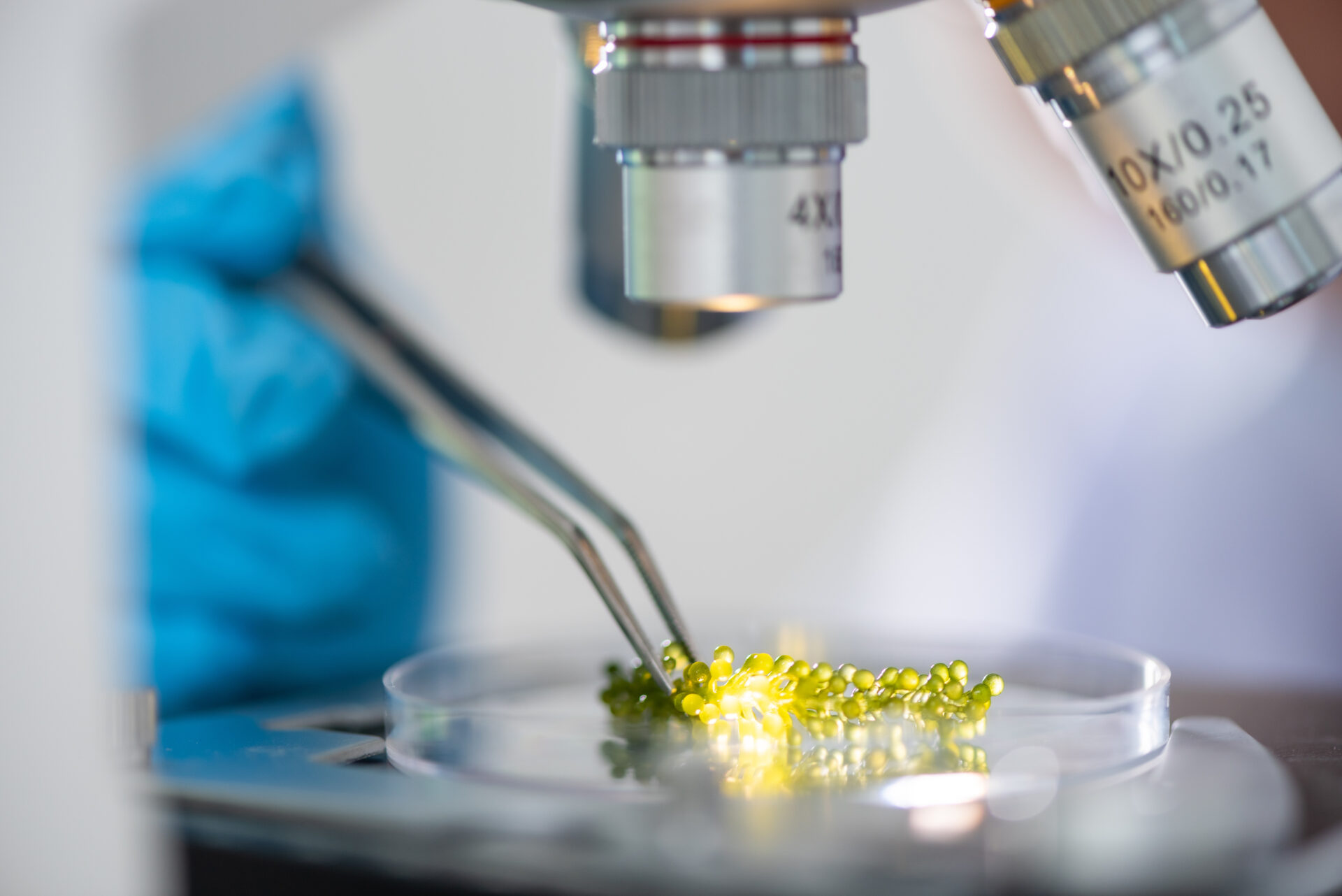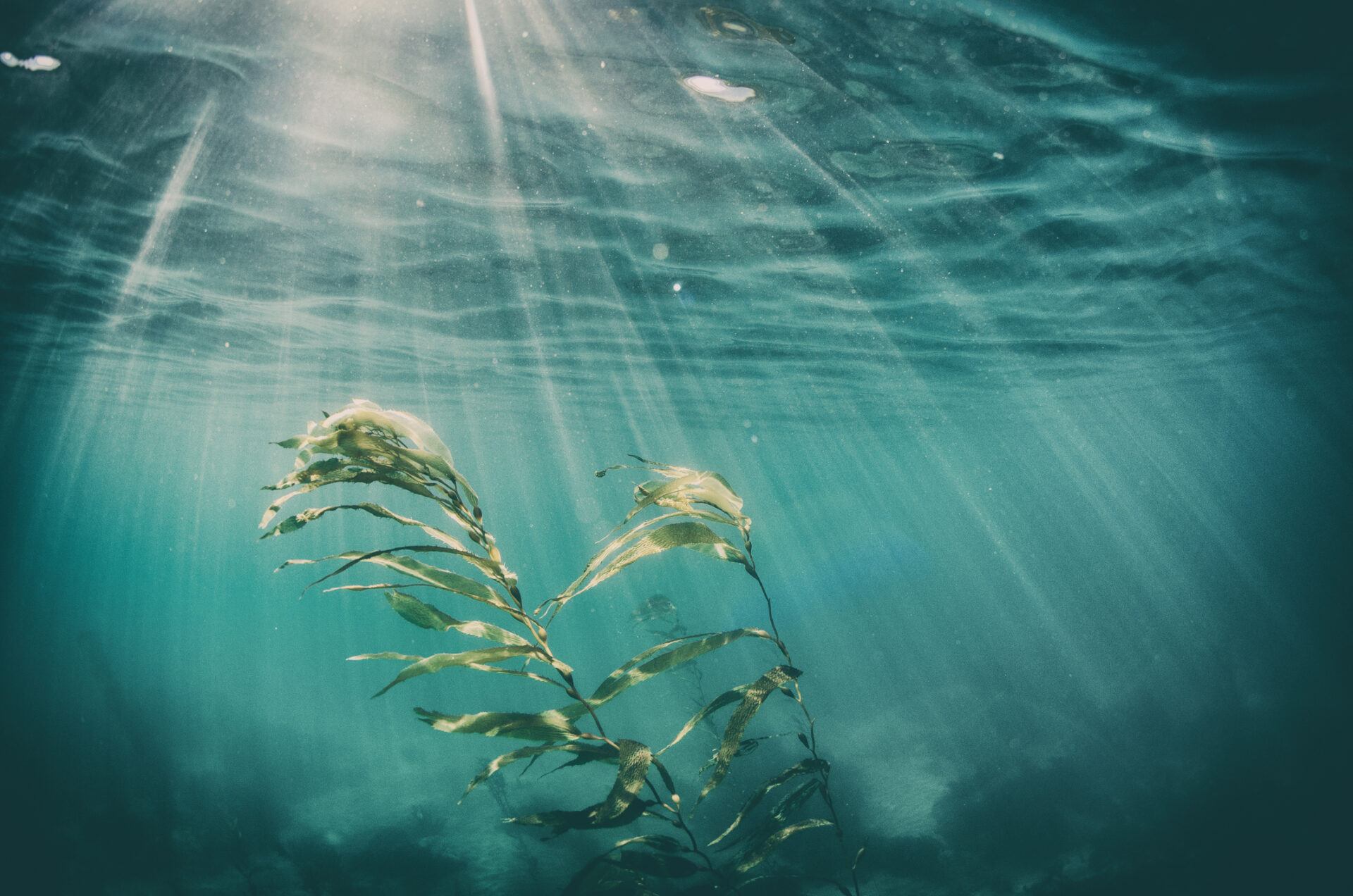The ocean covers over 70% of the planet and is an important source of active ingredients derived from the living things that inhabit it, such as algae, fungi, sponges, mollusks, plankton, and many others. Other than playing a key role in their own ecosystem, seaweeds have long been used as food and a healing source by humans and animals.
Substances extracted from these organisms can be applied in the formulation of nutraceutical products. In fact, over the past 50 years, scientists have found more than 30,000 chemicals in the ocean that offer potential benefits for human health. The following article explores the effects of some of the major marine extracts derived from algae and microalgae, looking at their use in nutraceuticals.
Marine algae: properties and benefits
Seaweeds are only one part of the enormous multitude of organisms that inhabit the entire ocean mass, but their group includes an incredible variety of specimens united by their ability to perform photosynthesis and produce oxygen. Theirs is a fundamental role in life: their presence makes the oceans habitable, and they form the basis of the food chain of the marine habitat.
The category of organisms called Algae can be divided into two distinct groups, which accommodate different specimens within them: microalgae and macroalgae.
The former are part of what is called phytoplankton and are organisms that live in the water column, that is, the space from the surface of the water mass to the seafloor. In contrast, the organisms recognized by the more generic term “algae” are macroalgae: plant-like specimens of various colors and sizes.
The substances that can be obtained from this type of organism are diverse, some of the main ones being: beta-carotene, lutein, astaxanthin, chlorophyll, phycobiliproteins and polyunsaturated fatty acids (such as Omega 3). The benefits of these biomolecules are supported by a large body of scientific literature and are still being studied.
The role of algae in nutraceuticals
Several nutraceutical products contain marine extracts derived from algae. These extracts differ in their beneficial effects on human health and can be incorporated into the diet to compensate for dietary deficiencies or, for example, for their anti-inflammatory effects to combat hypertension, obesity, or diabetes.
Due to growing awareness of the issue of sustainability, many consumers prefer dietary supplements containing plant-derived substances over animal supplements. Specifically, algae and microalgae have long been used as food, especially in some Asian cultures. Indeed, their nutritional value is higher than that of many terrestrial crops, and their production is more sustainable.

Our algae marine extracts
As a company long engaged in the research and supply of nutraceuticals, at Flarer we handle the distribution of some important marine extracts derived from algae and microalgae.
Omega 3
Omega-3 fatty acids play an important role in body health. They are called essential because the human body is unable to produce them on its own, and therefore, they must be supplemented through the diet.
One can generally obtain this nutrient from fish products such as oily fish, salmon, trout, or tuna. However, we handle the supply of extracts derived from seaweed for the production of vegan supplements, which are more sustainable and suitable for customers who want to avoid animal products. Vegan Omega 3 contains within it the two forms of the omega-3 fatty acids which are physiologically very important:
- Eicosapentaenoic acid (EPA) contributes to the heart’s and circulatory systems’ normal functioning. Its intake prevents the development of cardiovascular disease by reducing blood pressure and increasing levels of good cholesterol.
- Docosahexaenoic acid (DHA) preserves heart health and is critical for maintaining a healthy brain and nervous system. In addition, DHA intake in mothers contributes to normal eye and brain development in the fetus.
Astaxanthin
Astaxanthin is a substance belonging to the carotenoid category that imparts a reddish color to various aquatic living things such as salmon or some crustaceans. It is also present in some algae and microalgae, making obtaining a completely vegan extract possible. The main property of this molecule is its antioxidant effect, which makes it particularly useful in formulating supplements against high cholesterol. Astaxanthin is also used in the treatment of Alzheimer’s, Parkinson’s, stroke, and age-related macular degeneration.
Flarer and the distribution of marine extracts
Marine extracts are just some of the many products in our portfolio. Our company is involved in scouting, researching, and supplying extracts and substances used in the pharmaceutical, nutraceutical, and cosmetic sectors. With know-how cultivated over decades of experience, we have developed an effective strategy for managing the entire process, including supporting regulatory requirements for extra-EU transport of nutraceutical active ingredients.
In addition, we offer support for R&D laboratories, a role we believe is important in a field of strong scientific interest such as plant extracts, marine, and otherwise.
